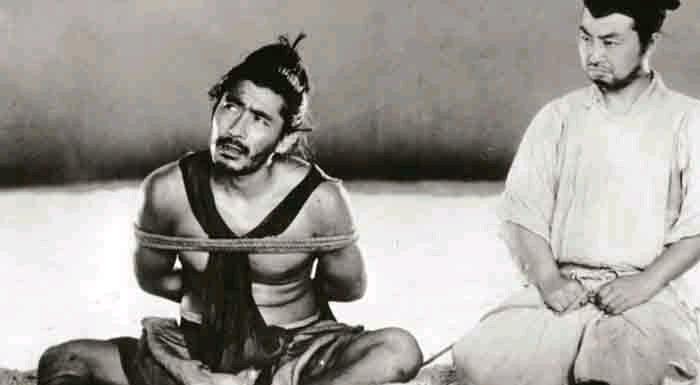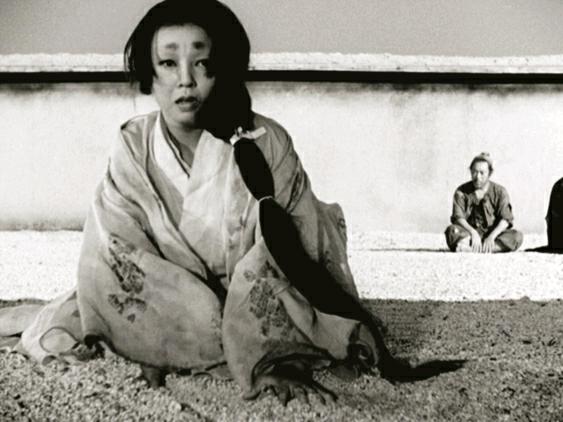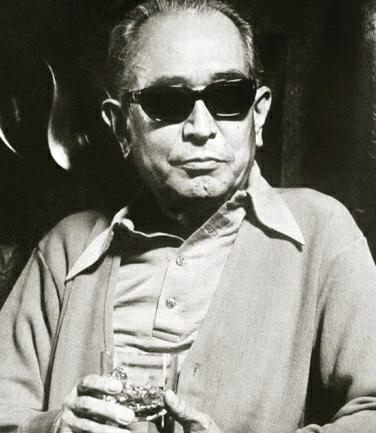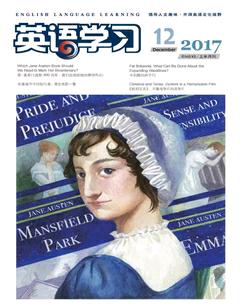哲学须向电影多学习
By+Costica+Bradatan
電影《罗生门》讲述了在一宗命案中涉案人员各说各话使得真相扑朔迷离的故事,从而质疑了人类是否真正有了解真相的能力。这一主题其实并不新颖,早已有哲学家表达过类似观点,但是在打动人心、启发思考等方面,似乎哲学要落后电影许多。上帝已死,真理不复存在,人类自此迷茫困惑、孤立无援,但有一件事或许可以令我们感到安慰:我们如今能够以更多的视角去看待生命与世界。
Picture this: a man—a samurai1—is killed in a grove. One by one, all those involved are brought before a court. The woodcutter talks of the horror that seized him when he stumbled upon2 the body. The priest testifies that he had seen the man earlier and identifies a likely attacker. Then the attacker, Tajōmaru, is brought in. He claims he tied up the samurai, seduced his wife right in front of him, and afterwards killed the samurai in a swordfight. Some readers might recognise the plot outline. The film is Akira Kurosawas masterpiece Rash?mon(1950), which treats viewers to a unique feast: thinking on screen, philosophising not through any structured argumentation, nor in abstruse language,3 but via exquisite storytelling, compelling imagery and innovative cinematography. Its then the turn of the samurais wife to give testimony. In her story, she is raped by Tajōmaru, who leaves without killing her husband. After the rape, she unties her husband, but then passes out, only to awake to find her husband dead next to her, having committed suicide.
The philosophical puzzle at the core of Kurosawas film is clear already: what if we cant really know and tell whats going on? If whatever account we produce about the world around us is a world unto itself, and each persons account is wildly different from any others, with no way of knowing whose one is actually the case?
Even more compellingly, we then hear, via a medium, the version of the dead samurai himself: after Tajōmaru sleeps with his wife, the brigand begs her to go away with him,4 which she accepts on the condition that he kills her husband. But Tajōmaru suddenly takes her husbands side. Somehow the lady manages to escape, the brigand frees the samurai and leaves, and the latter commits suicide.
Kurosawas characters look at the same world, yet for moral or cognitive reasons their accounts of what they see are worlds in themselves, making it impossible to know what the actual world is like. The films ultimate message is that we are fundamentally unable to “tell the truth”.
What we hear next is yet another version, the woodcutters. He had witnessed the whole thing, but didnt tell the court. He gives his account after the trial, under the Rash?mon gate: after Tajōmaru sleeps with the lady, he begs her to marry him. Unmoved, she frees her husband and challenges him to fight the brigand. The samurai engages Tajōmaru in a swordfight, in which he is killed.endprint
This is the latest version, but we cant say its the true one. Had there been more people involved, we would have heard even more accounts, each more different than the last. Philosophically, this is nothing new: from Friedrich Nietzsches deconstruction of truth in terms of the “will to power” to Richard Rortys notion that truth is “made rather than found” to our own ages “social construction” of everything, weve got accustomed to a world that seems to have dispensed itself of the need to know where the truth lies.5 Disturbing as its message might be at a human level, Kurosawas film joins a conversation that has been going on for a while now in Western philosophy.
In his films, Kurosawa does exactly what any good filmmaker should do: provoke viewers into transcending what they see on screen, engage with big questions about the human condition, pursue philosophical ends through cinematic means. Regardless of whether films satisfy some technical definition of philosophy, the fact remains that they can have on us the same effect that the great, perennial6 works of philosophy do: shake and awaken us, breathe new life into our minds, open us up to new ways of seeing ourselves and the world around us.
Most important, however, given philosophersunhealthy obsession with rationality, filmmakers can teach them what it means to be human: about how shifty, complex and ultimately irrational we can be. We are driven by emotions and passions as much as we are by reason; we employ mythical imagination just as much as argumentative thinking. From film, philosophy can learn many a useful thing—human warmth, social urgency and a way of speaking directly to the human heart—things that dont abound in philosophical texts.
Kurosawas Rash?mon does exactly that. Not only does the film flesh out the old notion that truth is man-made, but it dramatises and intensifies it in a way that philosophy alone is unable to. Through narrative, filming style, performance, mise-en-scène and such like, we get a sense of what the inability to grasp the real feels like: the conflicting stories are told in flashback,7 which raises the crucial issue of truths relationship to memory and forgetting. The remembering and retelling is done during a relentless downpour, as though everything in this world—reality, truth, ourselves—has become liquid. In the court, we never see the judges faces, only those of the people brought in to give their wildly conflicting testimonies: they are talking to us—we are the judges, we have to take everything in; then there are shots directly into the Sun, which creates a lingering sense of blindness and disorientation8. All this only deepens the overwhelming impression that what we witness—an ending to our ability to tell the truth—is a tragedy of cosmic9 proportions.endprint
Of course, all this is “only a movie”. In addition, its been so much fun toying around with the notion that truth is a human fabrication10, that everything can be endlessly constructed and deconstructed. However, when were pushed to accept lies not as lies but as “alternative facts”, we know that the frame of reference is no longer Rorty or Nietzsche, but George Orwells11 1984. And its not a fiction we read, its one we start to inhabit.
We should have at least seen it coming. After all, Rash?mon gave us plenty of warning.
想象一下这幅画面:一个男人—— 一位武士——在丛林里被杀害。一个接着一个,所有与案件有关的人都被带到了纠察使署堂前。樵夫说起自己撞见尸体时如何胆战心惊。行脚僧作证自己之前见到了武士并且指认了一个嫌犯。随后,凶手多襄丸出堂受审。他宣称自己绑住了武士,在武士面前勾引了他的妻子,随后在决斗中杀死了武士。
有些读者可能认得这个情节梗概。这部电影是黑泽明1950年的代表作《罗生门》,这一作品为观众带来了独特的体验:它借银屏启迪思考,而且并非通过条理清楚的论证或是晦涩难懂的语言,而是通过精致巧妙的叙事、引人入胜的画面和独具匠心的摄影来探讨哲学问题。
接着就轮到武士的妻子作证了。在她的证词中,她被多襄丸侮辱了,之后他只是离开而并没有杀害她的丈夫。强奸发生后,她解开了丈夫的绳子,但却晕了过去,醒来发现丈夫在她身边自杀身亡。
黑泽明这部电影中核心的哲学难题已经十分清楚了:要是我们无法真正知晓并说出实际发生了什么,该怎么办?如果我们对于周遭世界作出的任何叙述本身就是一个独立的世界,每个人的叙述都和另一个人的大不相同,那么究竟谁的说法才是真实的就无从知晓,那又该怎么办?
更有趣的是,我们接下来通过灵媒听到了死者的说法:在多襄丸占有了他的妻子后,这个强盗乞求她能和他远走高飞,妻子答应了,但条件是他必须杀死她的丈夫。但多襄丸突然站到了她丈夫一边。这个女人后来设法逃脱了,多襄丸放了武士后就走了,而武士毅然自尽。
黑泽明的角色们看见的是同一个世界,然而出于道德或是认知方面的原因,他们对于自己所见所闻的叙述却是各自独立的世界,使得我们无从知晓真实世界究竟如何。电影所传达的最重要的信息就是我们从根本上无法“说出真相”。
我们接着听到的又是另一个版本——樵夫的版本。他目睹了整件事情的经过,但没有上报官府。审判结束后,在罗生门下,他给出了他的叙述:多襄丸强暴了武士的妻子后,他乞求她嫁给他。妻子不为所动,她解开了丈夫的绳子,要他同强盗决斗。武士和多襄丸大战一场,最终武士被杀死。
这是最新的版本,但我们不能说这就是真实的版本。如果有更多人涉案,那么我们就会听到更多的版本,每種都和前一种不一样。从哲学上讲,这并不新鲜:从弗里德里希·尼采以“权力意志”对真理的解构,到理查德·罗蒂提出观点说真理是“创造出来的而不是被发现的”,再到当今时代我们对一切事物的“社会构建”,我们已经对这个似乎不再需要知道真理存在于何处的世界习以为常。尽管从人类层面而言电影所传达的信息令人不安,但事实上这部电影所参与的哲学对话在西方哲学中已经颇有时日了。
在他的电影中,黑泽明恰恰做到了任何一个优秀电影人该做的事:启发观众进行银幕之外的深刻思考,探讨人类境况的大问题,通过电影的方式追求哲学目的。无论电影是否满足某些哲学的技术性定义,事实就是它们可以产生和那些永垂不朽的伟大哲学作品一样的效果:震撼并唤醒我们,为我们的头脑注入新生命,开启我们看待自身与周遭世界的新视角。
然而,最为重要的是,考虑到哲学家对于理性近乎病态的偏执,电影人可以教会他们人究竟是怎样的:我们可以多么心口不一、复杂多变、缺乏理性。我们受理性驱使,也同样受情绪和激情驱使;我们既有说理论辩的思维,也有创造神话的想象力。哲学可以从电影中学到许多有用的东西——人性的温暖、社会的紧迫性和直抵人心的声音——这些在哲学文本中并不常见。
黑泽明的《罗生门》就做到了这一点。电影不仅让“真理是人造的”这样一个并不新鲜的观点变得有血有肉,并且使其充满戏剧色彩与力量,而这单靠哲学是无法做到的。通过叙事、拍摄风格、表演、场面调度等等,我们体会到无法了解真相的感觉:自相矛盾的故事以倒叙的方式道来,提出了真相与记忆和遗忘有着何等关系这一关键问题。回忆与重述在一场持续不断的瓢泼大雨中完成,似乎世间万物——现实、真相、我们自身——都化为液体。在府衙,我们从未见到判官的脸,我们见到的只有那些出庭受审、各执一词的人的脸:他们在对我们说话——我们就是判官,我们必须接受一切;随后,镜头直接转向太阳,因此产生的失明与眩晕感挥之不去。这一切让我们更加相信我们所目睹的——我们无力说出真相——是一出天大的悲剧。
当然,这一切“仅仅是部电影”。此外,漫不经心地考虑“真理是人类捏造的”或是“万物可以被无限构建与解构”之类的观点一直很有趣。但是,当我们不得不接受谎言并非谎言而是“另一种现实”时,我们就会知道我们参照的不再是罗蒂或者尼采,而是乔治·奥威尔的《1984》。这不是一本我们阅读的虚构小说,而是一个我们开始生活在其中的世界。endprint
我们至少已经看到这个世界的来临。毕竟,《罗生门》给了我们不少警示。
1. samurai: //(日本旧时的)武士。
2. stumble upon: 偶然发现。
3. Akira Kurosawa: 黑泽明,日本电影导演、编剧、制片人,1990年获奥斯卡金像奖终身成就奖;philosophise: 用哲学家的思维研究,(对自然及人生的意义等)郑重地思考或谈论;abstruse: 深奥的。
4. medium: 灵媒,影片中为一名巫女;brigand: 强盗,土匪。
5. Friedrich Nietzsche: 弗里德里希·威廉·尼采(1844—1900),德国著名哲学家,被认为是西方现代哲学的开创者,尤其对存在主义与后现代主义哲学的发展影响极大,代表作有《悲剧的诞生》、《查拉图斯特拉如是说》、《偶像的黄昏》等;will to power: “权力意志”,是一切事物的本质,它在量上是不变的、绝对的、永恒的,但也不是僵死不动的,在永恒的运动变化中,事事物物被创造出来,又被消灭,世界就这样不断推陈出新,幻化不已。尼采认为,人的本质就是权力意志,这是一种高级的生命意志,人生的本质就在于不断地表现自己、创造自己、扩张自己,用一句话来概括,就是发挥自己的权力;Richard Rorty: 理查德·罗蒂(1931—2007),当代美国哲学家、思想家,也是美国新实用主义哲学的主要代表之一,著有《哲学与自然之镜》;dispense of: 摒弃,免除。
6. perennial: // 常在的,亘古不变的。
7. mise-en-scène: 法语“场面调度”,即placing on stage,原指在戏剧舞台上处理演员表演活动位置的一种技巧,后被引用到电影艺术创作中,指对演员调度和摄影机调度的统一处理;flashback:(小说、戏剧等的)倒叙,(電影、电视等的)闪回,是指根据表达需要,把事件的结局或某个最重要、最突出的片段提到作品前面,然后再从事件的开头按事情的发展顺序进行叙述。
8. disorientation: 迷失方向。
9. cosmic: 特大的,无限的。
10. fabrication: 捏造,虚构。
11. George Orwell: 乔治·奥威尔(1903—1950),英国小说家、记者和社会评论家,其作品多以揭示社会不公、反对极权、提倡社会民主主义为主题,代表作为政治讽刺小说《动物庄园》和《1984》。endprint

